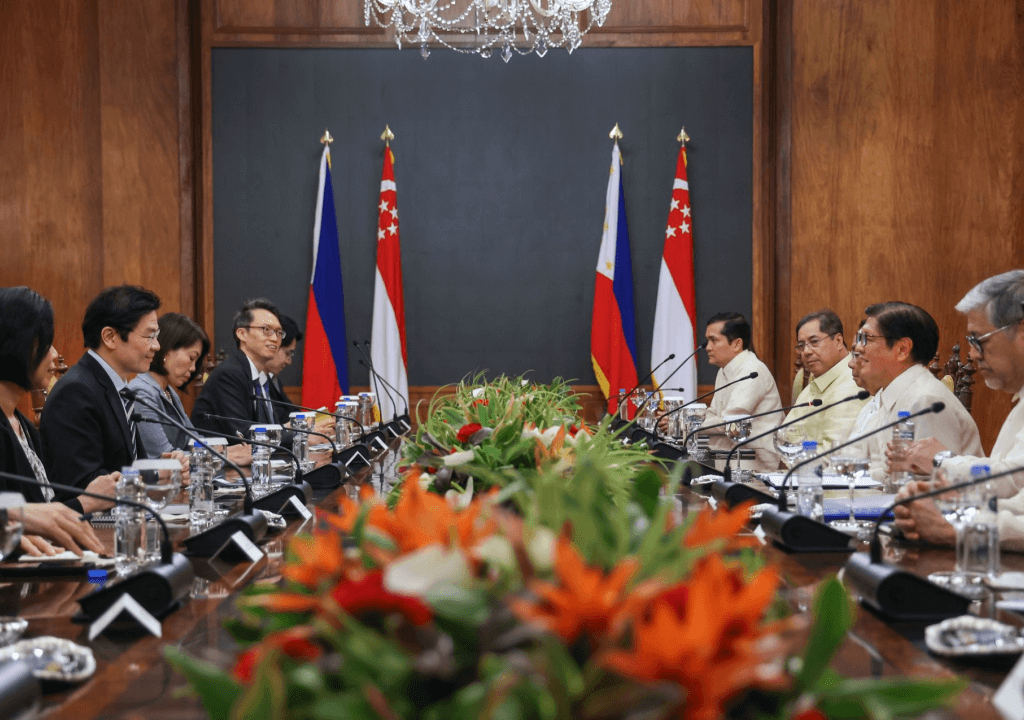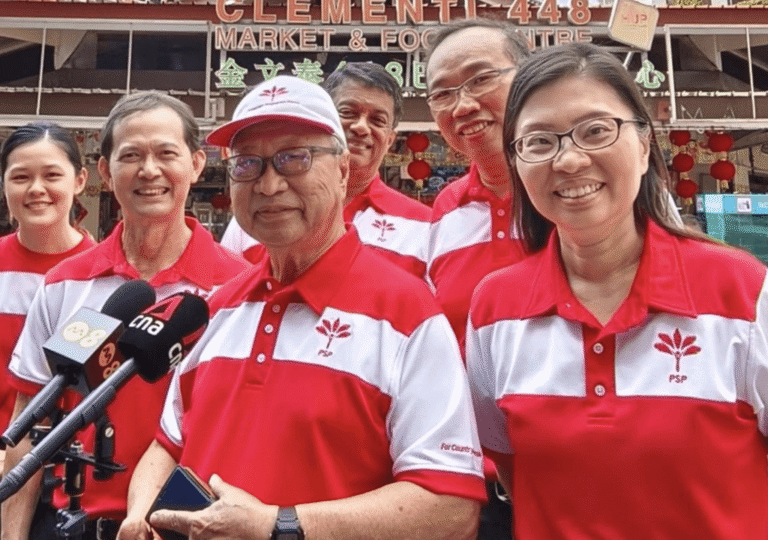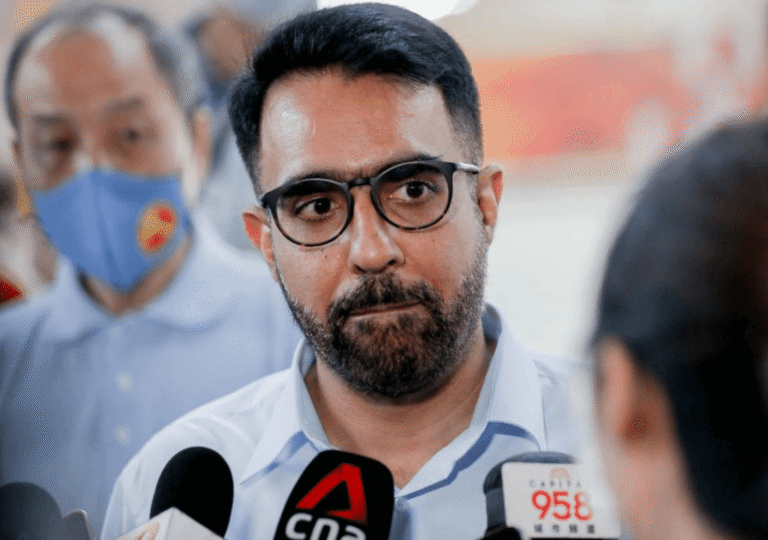Prime Minister Lawrence Wong of Singapore paid his first official visit to the Philippines from June 4 to 5 at the invitation of President Ferdinand Marcos Jr., who welcomed him with an official dinner at Malacañang Palace.
Wong, who also serves as Finance Minister, reaffirmed Singapore’s commitment to strengthening its partnership with the Philippines, even as global trade tensions persist and Southeast Asian economies continue to navigate the ripple effects of Trump-era protectionism. The two leaders—both key U.S. partners in the region—discussed ways to expand cooperation and exchanged views on regional and global developments.
The visit came at a time when ASEAN, the Southeast Asian regional bloc, is receiving heightened attention from both China and Europe, amid criticism that the recent summit leaned more heavily toward Beijing. Both Singapore and the Philippines are wary of this shift and remain intent on preserving a strong U.S. presence in the region to maintain strategic balance.
Deepening collaboration
Singapore and the Philippines, longtime partners in aviation, defense, and trade, moved to deepen their cooperation on Tuesday, announcing a slate of new initiatives spanning renewable energy, sustainability, public health, and civil service development.
The announcement followed a joint press conference at Malacañang Palace on June 4, the first day of Singaporean Prime Minister Lawrence Wong’s introductory visit to Manila. Mr. Wong described bilateral ties as stronger than ever, crediting decades of collaboration grounded in mutual trust and practical cooperation. He and Mr. Marcos pledged to expand efforts on several shared priorities.
A focus of the talks was renewable energy, particularly accelerating the long-planned ASEAN Power Grid—an ambitious regional project to integrate the electricity networks of the bloc’s ten member states by 2045. Mr. Marcos underscored Singapore’s role in helping the Philippines diversify its energy mix, while Mr. Wong noted that Singaporean firms were increasingly eyeing investments in Philippine solar and wind projects, aiming to align economic opportunity with climate goals.
On sustainability, the two governments are working toward a legally binding agreement to facilitate cross-border carbon credit transfers, in line with Article 6 of the Paris Agreement. Officials said the deal would open commercial carbon markets, promote green investment, and create high-quality jobs.
The two leaders also spotlighted health cooperation. Mr. Marcos expressed appreciation for Singapore’s efforts to protect the welfare of more than 200,000 Filipinos working in the city-state. Mr. Wong reiterated Singapore’s commitment to serving as a second home and praised Filipino healthcare workers who stood on the frontlines during the COVID-19 crisis.
The countries are also finalizing agreements on a health cooperation framework and a digital governance program involving the Philippine Civil Service Commission and the National University of Singapore..
Protect the interests within ASEAN
With Trump-era tariffs still weighing on Southeast Asian economies, many countries in the region face increasing pressure to secure new trade agreements and diversify their markets. This push for diversification could gradually erode U.S. influence in the region, particularly as China expands its financial and strategic outreach—quietly undermining the cohesion of the U.S.-aligned partnerships.
In this evolving geopolitical landscape, Singapore and the Philippines serve as stabilizing forces. As key U.S. allies, they are well-positioned to guide ASEAN toward shared interests or, at the very least, maintain a neutral balance that avoids overdependence on any one power. Notably, the Philippines—one of Washington’s closest regional partners—is set to chair ASEAN in 2026.
Prime Minister Wong pledged Singapore’s full support for the Philippines upcoming ASEAN chairmanship in 2026, with Singapore set to take on the role the following year—bringing two key U.S. allies into consecutive leadership positions.
In their concluding remarks, both leaders emphasized the importance of collaboration at the ASEAN level and reaffirmed their shared commitment to advancing regional integration. They expressed confidence that deeper cooperation would be essential to unlocking ASEAN’s full potential.







